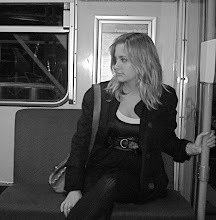
Think American Psycho, I know, bear with me.
Replace Patrick Bateman with a five foot three middle aged native of 'New Burnt Norton' aka some remote island meant to resemble New Guinea, and there you have it, the basis of Tama Janowitz's 1988 novel titled A Cannibal in Manhattan.
The idea is no doubt interesting. However, the overall attempt at a critique of western society and its values lacks the danger and immediacy which makes American Psycho so successful and engrossing.
The opening scene which depicts a hectic meeting between Mgungu Mgungu and Maria Fishburn, a white aristocrat from New York, is promising. Maria convinces Mgungu Mgungu to leave his three wives and return with her to New York City. Mgungu Mgungu is the sole narrator and the rest of the novel details his departure from life on New Burnt Norton and follows him through an indefinite stay in New York City where he goes from indigenous poster boy to homeless alcoholic to most wanted fugitive.
The question which lies at the heart of the novel concerns what it means to be civilized, and what it means to be savage. We are meant to determine that western progress and luxury does not necessarily entail a superior degree of sophistication or benevolence.
While on New Burnt Norton, Mgungu Mgungu is aware of products like Nike tennis shoes and famous figures like Jacqueline Kennedy Onassis. Yet, all his knowledge lacks context and so there is a great degree of naivete in the narrative voice. I often found this naivete inconsistent and confused. When we are meant to be questioning western expectations and standards of civility, I often found myself apathetic to the cruelty which Mgungu Mgungu endures.
At times, the novel reads like a who's who of the seventies with characters arguably based on Andy Warhol and Robert Smith of The Cure, not to mention the book is dedicated to Warhol himself.
The novel has its moments. Yet, fashionably critique the egotism and commercial cuture of The United States, it does not. What makes American Psycho so good is that the reader is unsure of the actuality of the narration and, in the end, what 'actually' happened is irrelevant. The effect lies in the extremes and in the destruction. However, at the close of Cannibal, I was left not angry at society for having destroyed this blank slate of a man, but I was moreover exasperated with his gullibility and passivity.
All in all, A Cannibal in Manhattan is a good read. I simply believe it lacks the kind of tour de force necessary to accomplish its intentions.
Rating: 2.5 out of 5
If you like Tama Janowitz,
try Jay McInerney's Bright Lights Big City

No comments:
Post a Comment